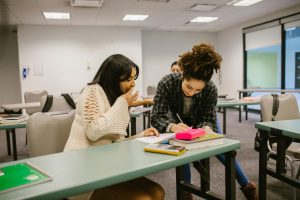How Service Learning Strengthens Real-World Citizenship Skills
Service learning is a powerful educational approach that combines community service with academic instruction, providing students with hands-on experiences that enhance their understanding of real-world issues and their role as global citizens. It goes beyond the traditional classroom setting, enabling students to actively engage with their communities and make a positive impact through their actions. Through service learning, students not only gain academic knowledge but also develop essential citizenship skills that will benefit them throughout their lives. In this article, we will explore the ways in which service learning strengthens real-world citizenship skills and why it is an essential component of any well-rounded education.
The Purpose of Service Learning
In today’s interconnected world, it is more important than ever for students to develop a sense of global citizenship. Service learning offers a unique opportunity for students to learn about different cultures, challenges, and perspectives, while also developing empathy, critical thinking, and problem-solving skills. It provides a hands-on learning experience that encourages students to actively engage with their communities and make a positive impact. By working collaboratively to address real-world issues, students become more aware of their responsibilities as citizens and gain a deeper understanding of the world around them.
Developing Empathy and Understanding
One of the key benefits of service learning is its ability to develop empathy and understanding in students. By working with diverse populations and facing real-world challenges, students are exposed to different perspectives and gain a better understanding of the complexities of the world. They learn to see beyond their own experiences and become more compassionate, empathetic individuals. This is a crucial skill for becoming a responsible global citizen.
Critical Thinking and Problem-Solving Skills
Through service learning, students are encouraged to think critically and creatively to solve real-world issues. In partnership with the community, they identify and analyze problems, develop solutions, and take action to make a positive impact. This hands-on approach to learning allows students to see the direct effects of their efforts and develop confidence in their abilities to make a difference. These skills are not only essential for citizenship but also for success in the workplace and in life.
Collaboration and Communication
Service learning also promotes collaboration and communication skills. By working with others to address complex issues, students learn how to effectively work in teams, manage conflicts, and communicate their ideas. These skills are vital in the workplace and are essential for building strong relationships with others. In today’s globalized world, the ability to work with diverse teams and communicate effectively is more important than ever, and service learning provides students with valuable opportunities to develop these skills.
Engaging in Active Citizenship
Service learning is an excellent way for students to engage in active citizenship. By partnering with their communities and taking action on real-world issues, students learn the importance of civic responsibility and develop a sense of agency. They become active participants in their communities and learn how to take initiative and make a positive impact. This not only benefits the community but also empowers students to become agents of change in their own lives and beyond.
The Impact of Service Learning
The impact of service learning goes far beyond the benefits for individual students. Communities benefit greatly from the contributions and efforts of service learning students. Students not only provide much-needed support and resources but also raise awareness of important issues and inspire others to take action. Service learning creates a positive ripple effect that extends far beyond the classroom, creating a lasting impact on individuals and communities.
In Conclusion
In today’s interconnected world, service learning is an essential component of education. It not only enhances academic knowledge but also strengthens real-world citizenship skills. Through service learning, students develop empathy, critical thinking, collaboration, communication, and active citizenship skills, making them responsible global citizens. As the saying goes, “It takes a village to raise a child,” and service learning provides students with valuable opportunities to learn, grow, and make a positive impact in their communities and beyond.










